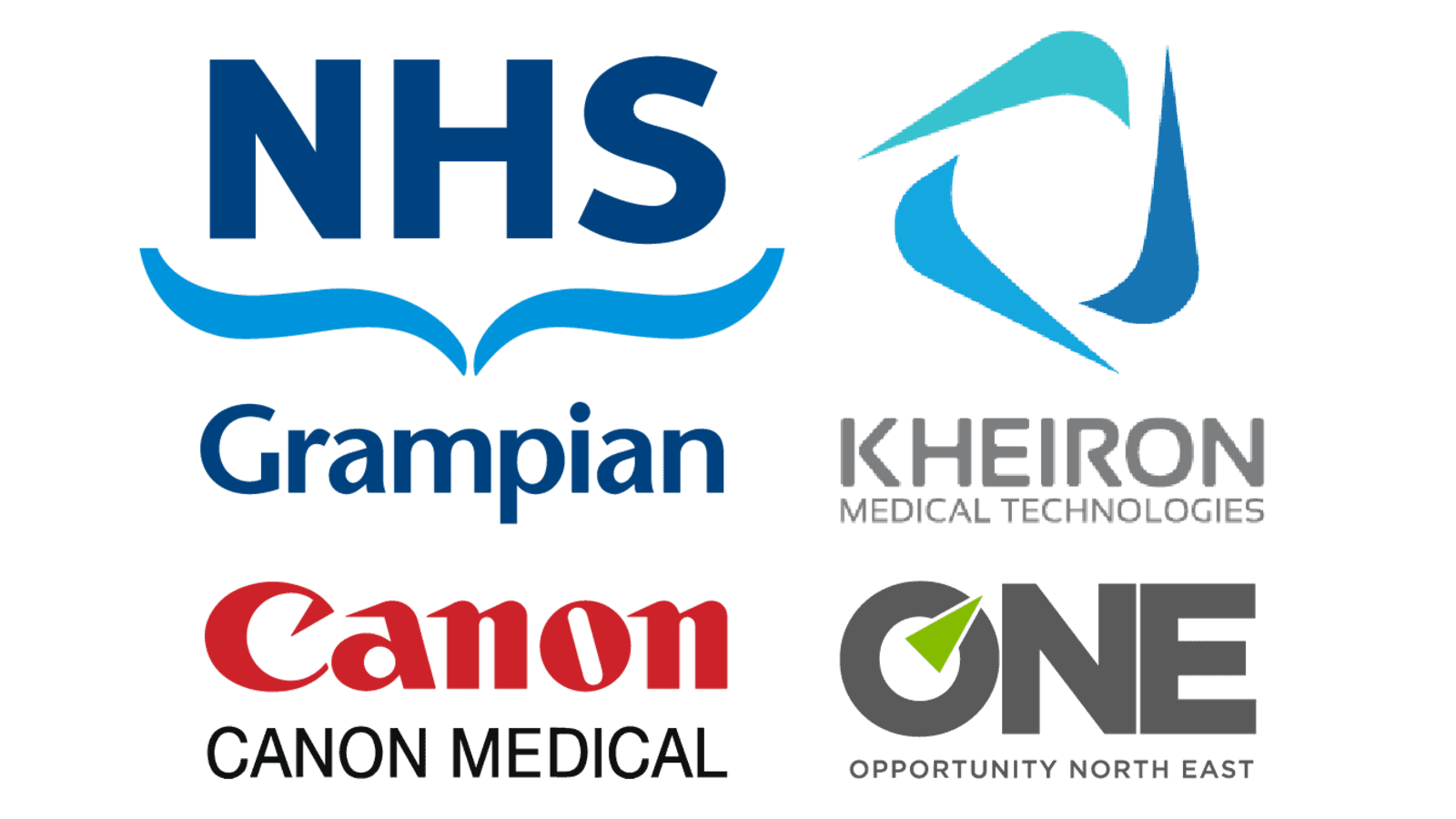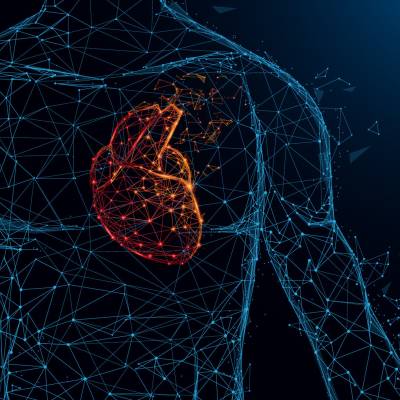Join a healthcare machine learning course you can study flexibly, online.
Machine learning has the potential to revolutionise healthcare. This Masters-level online short course will show you how.
In this machine learning course, you’ll explore:
- how machines analyse and learn from health data to improve human health, and
- how we ensure the application of AI in healthcare is trustworthy, ethical and inclusive.
You’ll join experts from our Centre for Health Data Science, the NHS ,and industry, and discover:
- what machine learning is, and how it can be applied to healthcare problems
- the potential benefits of machine learning for the health of individuals and populations
- the technical, legal and ethical challenges of using AI in healthcare.
This flexible online course fits around full-time work.
Who can join this online machine learning course?
This course is ideal if you have:
- a background in healthcare or health research and want to learn more about machine learning, or
- a background in computational or data-intensive sciences and you’re keen to work in the health sector.
Build credits towards a Masters degree
This online course is part of:
You can use the credits you earn on this short course towards either of these postgraduate qualifications.

Supported by Canon Medical, NHS Grampian, Kheiron Medical and Opportunity North East.
Experts from these organisations help to:
- develop and review what you learn on our health data science courses
- ensure your learning addresses in-demand sector needs.
They may deliver guest teaching too.
What you’ll study
You’ll cover topics including:
- supervised and unsupervised machine learning methods
- preparing datasets for machine learning
- evaluating the performance of machine learning algorithms
- theory and implementation of artificial neural networks
- machine learning approaches to natural language processing
- case studies of machine learning applications using health data
- the machine learning workflow using the popular data science language R
- technical, ethical and legal challenges in the field
- active areas of research in machine learning.
By the end of this course, you’ll be able to…
-
Describe the machine learning workflow.
-
Explain how machine learning is used to address healthcare problems.
-
Relate a range of healthcare problems to appropriate machine learning algorithms.
-
Discuss current challenges with implementing machine learning in healthcare.
-
Apply machine learning methods using R to address healthcare problems.
How you’ll study
Online learning
This distance-learning machine learning course is delivered flexibly, 100% online.
You can learn with us anywhere, no student visa required, and manage your study hours to suit you.
Your teaching
This course is taught at Masters level.
Teaching is delivered through MyAberdeen, our online Virtual Learning Environment (VLE). It holds all the materials, tools and support you’ll need in your studies. Take a look around MyAberdeen.
You can access your learning materials on computer, smartphone and laptop, 24 hours a day. You’ll find a range of resources available, including:
- videos
- video lectures to stream or download
- one-to-one tutorials
- reading materials
- discussion boards with your tutors and peers
- the online resources of our award-winning Sir Duncan Rice Library.
One-to-one tutorials
You’ll have lots of direct support while you study with us on this course.
If you live locally, you’re welcome to attend weekly on-campus tutorials at our Foresterhill Health Campus in Aberdeen.
If you’re studying remotely, you’ll have the same level of support online via one-to-one online tutorials with your course tutors.
Your tutors
This course is delivered jointly by our School of Medicine, Medical Sciences and Nutrition and our School of Natural and Computing Sciences.
You’ll learn from a multidisciplinary team of experts in health research, engineering, computing, ethics and law.
You’ll be assessed entirely online via:
- a report describing the application of a suitable machine learning algorithm to address an example healthcare problem (70% of your total grade)
- a poster discussing a published application of machine learning in healthcare (30% of your total grade).
The course totals approximately 150 hours of study and assessment time. That’s around 10 – 15 hours per week.
This is an indicative guide to the time required for a typical student at this level to achieve the learning outcomes. This includes time for independent study, as well as teaching and assessments.
You can largely set your own study hours each week to cover the materials. MyAberdeen is available 24/7, so you can log in and study when it suits you.
Activities at fixed times
There may be some activities scheduled for fixed times, such as assessments with deadlines or meetings with your tutor. But otherwise, you can access and work through the course at your convenience.
Weekly on-campus tutorials
If you live locally and want to attend the weekly on-campus tutorials, they’ll:
- take place once a week, on the same day each week
- be two hours long.
Our first-class support structure will ensure that you aren’t alone in your studies. You’ll have contact with your tutors via MyAberdeen and email. You can use social media and discussion boards to chat with your fellow students too.
We provide a wide range of services to support you in your studies and beyond:
- Careers and Employability Service – including one-to-one advice sessions
- Disability support
- IT support
- Library support
- Student Support Service – help with finances, stress, wellbeing and non-academic issues
- Student Learning Service – study support, with advice sessions available via phone or Skype
- Aberdeen University Students’ Association (AUSA) – run by students for students
- Toolkit – clever apps and free training that can make your study life easier
Wherever you are in the world, you’ll feel part of our very special Aberdeen learning community.
Your course coordinator

Dr Dimitra Blana
Dimitra is an interdisciplinary health researcher with a background in biomedical and computer engineering. She has over 10 years’ experience working with health data and advanced modelling methods in the UK and the USA.
View Dimitra’s profileWhere this will take you
Towards a Masters
You’ll earn 15 credits at Masters level (SCQF Level 11) with this course. You can use these credits towards our:

Masters in Applied Health Sciences
Fast-track your career in healthcare with our uniquely flexible MSc Applied Health Sciences. Study 100% online or combine with on-campus courses at our Foresterhill Health Campus. 10% discount for NHS staff.
View MSc Applied Health Sciences
Masters in Health Data Science
Develop your skills in health data science, whether your background’s in healthcare or computing, with this flexible online MSc.
View MSc Health Data ScienceBuild your learning with more short courses
We have a range of online healthcare and medicine short courses you can use to earn in-demand skills.
Many carry credits you can build up into postgraduate qualifications, including Masters degrees:
Careers
Nationally and internationally, there is a critical shortage in data-intensive analytic capacity applied to healthcare.
This course is a perfect first step for building your machine learning skills towards a career in health data science. It will help you work towards a career as a:
- health data analyst
- health data scientist.
Career pathways span academia, the NHS and industry.
Continuing Professional Development (CPD)
Your employer or professional institute may recognise this course for CPD. Talk to your employer or institute to find out more.

Free career support
Access our free careers service while you study.
- 1:1 appointments
- CV checks
- Interview prep
- Job opportunities
Entry requirements
Entry requirements
We welcome students from all over the world.
This course has no formal entry requirements. You do not need to provide proof of your qualifications.
But you do need to check the entry guidance above to understand the level of teaching delivered, to decide if this course is right for you.
If you do not have qualifications from the UK, check the equivalent teaching level for your country.
Visa requirements
You do not need a student visa to study online with us.
English language requirements
Teaching is delivered in English.
You do not have to provide proof of your English language skills to join this course. But we want to make sure that you can use English well enough to study successfully.
Recommended level of English
This course uses our Postgraduate Higher level of English language proficiency.
These are our Postgraduate Higher requirements, and these are minimum scores.
IELTS Academic, IELTS UKVI Academic, and IELTS Online (not IELTS Indicator or IELTS General Training)
- 6.5 overall
- 5.5 for listening and speaking
- 6.0 for reading and writing
TOEFL iBT and TOEFL iBT Home Edition
- 90 overall
- 17 for listening
- 21 for reading
- 20 for speaking
- 21 for writing
- TOEFL DI code is 0818
Cambridge English: B2 First, C1 Advanced, or C2 Proficiency
- 176 overall
- 162 for listening and speaking
- 169 for reading and writing
LanguageCert Academic/LanguageCert Academic SELT
- 70 overall
- 60 for listening and speaking
- 65 for reading and writing
LanguageCert International ESOL B2 Communicator (Written and Spoken) – Online / In-centre
- Overall High Pass
- 33 for listening, reading and speaking
- 38 for writing
Oxford ELLT Digital – English Language Level Test Online
- 7.0 overall
- 5.0 for listening and speaking
- 6.0 for reading and writing
PTE Academic (online test not accepted)
- 62 overall
- 59 for listening, reading, speaking and writing
Duolingo – tests taken from 1 July 2024 onward
- 120 overall
- 95 for listening and speaking
- 105 for reading and writing
University of Aberdeen English Pre-sessional Programme (PSE)
- Pass
- Valid for one year. Refresher can be offered if out of date
Pre-sessional academic English preparation programmes undertaken at other UK universities
- Pass at an equivalent of 6.5 (C1)
- B2 in all four skills
- Certification must be within one year prior to the start of your course
For more information about language qualifications see our English Language Requirements page.
You will need access to:
A computer (PC, laptop or Mac) operating on either:
- Windows 10 or later
- macOS 10.15 (Catalina) or later.
Most teaching materials are smartphone- and tablet-friendly. But we recommend a proper laptop or desktop for completing assignments comfortably.
Reliable internet access
We recommend:
- a wired connection
- a minimum download speed of 2 Mbps so you can take part fully in live sessions.
Speakers or headphones
- We recommend a headset with built-in microphone and earphones if you’re likely to study in an environment with background noise.
- A webcam is optional, but you may like to use one for some interactive sessions.
Software
We’ll give you access to Office365 applications. This means you can use online versions of Microsoft Word, Excel, and PowerPoint and install these programs on up to five personal devices.
If your course requires specialist software, we’ll provide you with access to this and a licence that lasts throughout your studies.
See our detailed IT requirements for more information.
When you study with us, you can expect a first-class support structure so that you’re never alone in your studies.
But learning online does mean you have to motivate yourself and manage your own time.
Your most important commitment will be time – the time to work through, reflect on and understand your teaching materials.
Before you start a course that involves a high degree of independent study, we recommend looking at the time you will be able to devote to your studies each week:
- Be realistic
- Create a weekly schedule as a guide
If you have any questions about studying online, get in touch with our friendly team. We’re here to help.
Fee payment
Your course fee needs to be paid in full before you start your course.
We accept payment via Visa Debit, Visa Credit and Mastercard.
Ways to save
You may be able to get help funding this course via:
- discounts – if any discounts are available for this course, they’ll appear in the section below
- employer sponsorship – we accept full and partial fee payments from sponsors.
Find out more about funding options.
Student card
All our students are entitled to a University of Aberdeen student card. This gives you access to a range of student discounts around the city and online.
This course has no formal entry requirements. You decide if it’s suitable for you.
The course is delivered at Masters level. At this level, you’d usually have at least:
- a 2:2 UK undergraduate degree (or equivalent), or
- relevant experience that supports this level of study.
Apply for this course




















